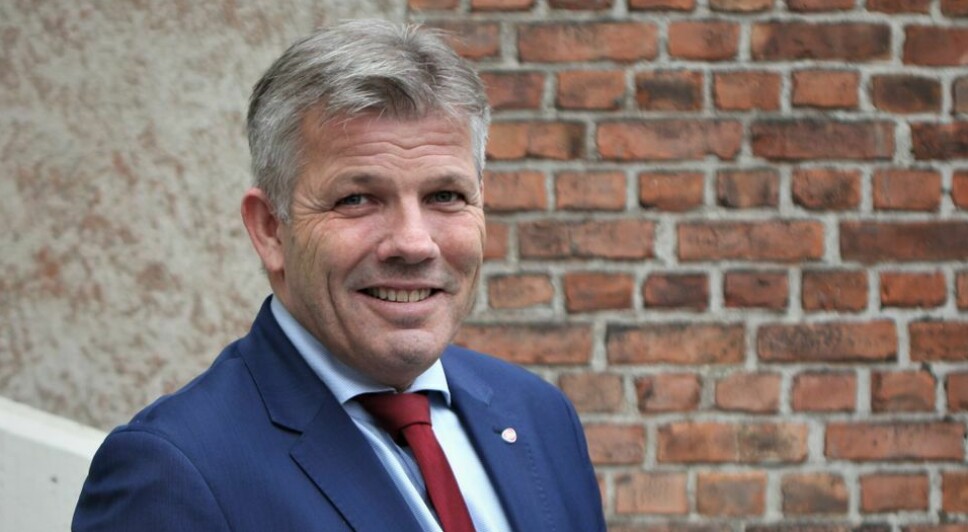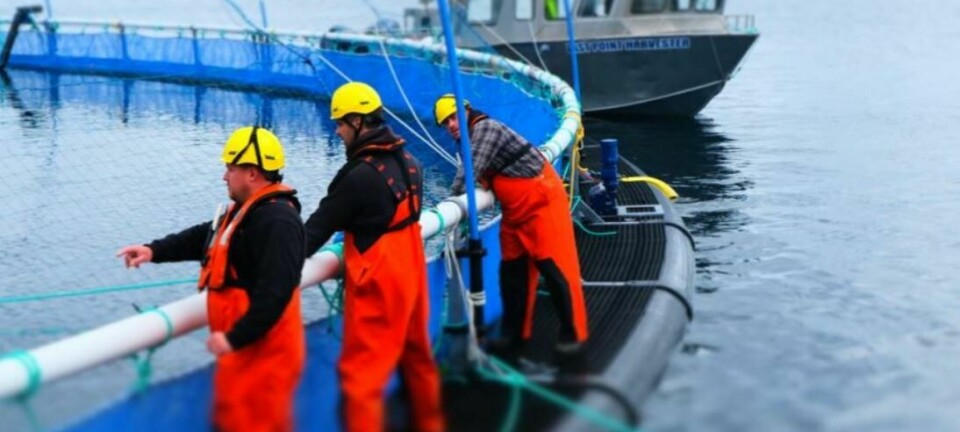
Norway's biomass auction falls short
State raises £320m but a quarter of extra production allowance is unsold after major players boycott sale because of 40% tax plan
Norway’s fisheries minister, Bjørnar Skjæran, has claimed that this year’s auction of extra biomass allowance for salmonid farming was a success, despite a quarter of the capacity remaining unsold and the country’s biggest farmers declining to take part.
The auction took place on Wednesday and Thursday this week and followed a government announcement in late September that it plans to impose a 40% “resource” tax on salmon and trout farmers from the beginning of 2023.
That prompted some salmon farmers to take up the state’s offer of refunds for extra biomass bought for a fixed price of NOK 200,000 per tonne earlier in the year. The farmers say the proposed 40% tax means the MTB is no longer worth that amount.
Boycott by biggest players
The tax proposal has also led to investments worth billions of NOK being put on hold, and major players Mowi, SalMar, Lerøy, Cermaq, and Grieg boycotted the auction in protest at the proposed tax.
A total of 32,887 tonnes of biomass allowance (MTB) were offered in this week’s auction, of which 24,644 tonnes were sold for a total of NOK 3.8 billion (£319.5 million). The remaining 8,243 tonnes of MTB were left on the shelf.
The permits have been sold in production areas along the coast where sea lice levels on salmon farms and in the surrounding waters have been assessed as acceptable for expansion.
Prices paid varied from the reserve price of NOK 100,000 per tonne up to NOK 185,222. There were 22 companies that bought MTB, with the overall average price working out at NOK 152,075.
'Still good demand'
“The government’s aim is to facilitate growth in the industry through the auction and there are many players who have bid. The auction shows that there is still good demand for capacity in most production areas, where farming is a large and important industry today,” said Skjæran.
However, Geir Ove Ystmark, chief executive of the state’s seafood marketing company, Seafood Norway, said that before the tax announcement the auction had been expected to raise at least NOK 8.5 bn.
“The expectations ahead of this year’s auction, before the proposal for resource tax was put on the table, were more than double. In other words, they have lost around 4 billion,” said Ystmark.
“The companies would have offered far more if the resource tax proposal was not on the table.”
Should have delayed
He added: “It would have been wise to postpone the auction until after the final decision on a possible ground rent had been negotiated. Then it would have been predictable for everyone.”
In addition to the postponed investments, the listed salmon companies on the Oslo Stock Exchange have also lost close to NOK 67 bn in share value. If non-listed companies are added, the salmon and trout companies have collectively fallen in value by more than NOK 100 bn.
A full list of which companies bought MTB, how much they bought, and what they paid is available on Fish Farming Expert's Norwegian sister site, Kyst.no.






















































